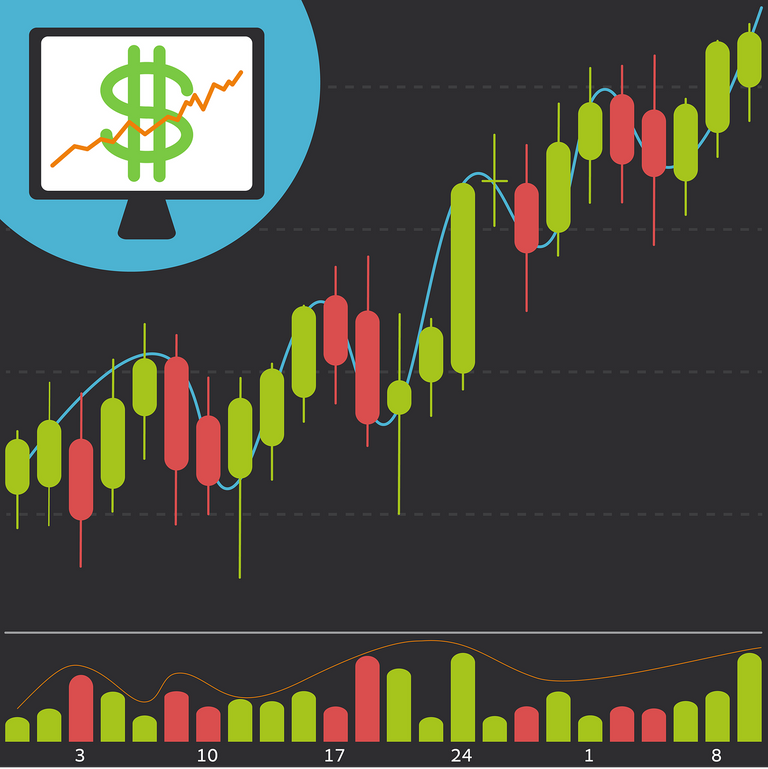In the world of financial markets, Forex trading has gained significant popularity. Many people are drawn to the allure of potentially high profits and the ability to trade currencies from the comfort of their own homes. However, it is essential to understand the realities of Forex trading and whether it is genuinely profitable.
Introduction
Forex trading, also known as foreign exchange trading, involves the buying and selling of different currencies. It is the largest financial market globally, with trillions of dollars traded daily. Individuals, financial institutions, and governments all participate in this market, making it highly liquid and volatile.
Understanding Forex Trading
In the world of financial markets, Forex trading has gained significant popularity. Many people are drawn to the allure of potentially high profits and the ability to trade currencies from the comfort of their own homes. However, it is essential to understand the realities of Forex trading and whether it is genuinely profitable.

What is Forex Trading?
Forex trading is the process of speculating on the value of one currency against another. Traders aim to profit from fluctuations in currency exchange rates. For example, if a trader believes the value of the Euro will rise against the US Dollar, they would buy Euros and sell Dollars.
How does Forex Trading Work?
Forex trading takes place through decentralized global exchanges, where currencies are traded electronically. The market operates 24 hours a day, five days a week, allowing traders from all over the world to participate at any time. Transactions occur between participants through intermediaries called Forex brokers.
Major Participants in the Forex Market
The Forex market consists of various participants, including banks, hedge funds, corporations, governments, and individual retail traders. Banks and financial institutions dominate the market, accounting for a significant portion of the trading volume. Retail traders, on the other hand, access the market through online Forex brokers.
The Profitability of Forex Trading
Potential for Profit
Forex trading offers the potential for substantial profits due to the high leverage available. Leverage allows traders to control larger positions with a relatively small amount of capital. However, it is important to note that leverage can also amplify losses, making risk management crucial.
Risks Involved
While Forex trading can be profitable, it is not without risks. The market is highly volatile, and currency prices can fluctuate rapidly due to various factors such as economic indicators, geopolitical events, and market sentiment. Traders must be prepared to face potential losses and have a well-defined risk management strategy in place.

Factors Affecting Profitability
Several factors influence the profitability of Forex trading. These include market conditions, the trader's skill level, trading strategies employed, and the ability to analyze and interpret market trends. Additionally, economic factors, such as interest rates and inflation, can significantly impact currency valuations.
Key Strategies for Successful Forex Trading
To increase the chances of profitability in Forex trading, traders often employ various strategies. These strategies can be broadly categorized into technical analysis, fundamental analysis, and risk management.
Technical Analysis
Technical analysis involves the use of historical price data, charts, and indicators to predict future price movements. Traders analyze patterns, trends, and support/resistance levels to make informed trading decisions. Technical analysis can help identify entry and exit points and assess market sentiment.
Fundamental Analysis
Fundamental analysis focuses on examining economic and political factors that influence currency values. Traders consider factors such as GDP growth, inflation rates, employment data, and central bank policies. By understanding the underlying fundamentals, traders can anticipate long-term currency movements.
Risk Management
Successful Forex traders prioritize risk management to protect their capital. This involves setting stop-loss orders, which automatically exit trades if prices move against the trader's position. Additionally, traders use proper position sizing techniques and diversification to minimize the impact of potential losses.

The Importance of Education and Practice
To become a profitable Forex trader, education and practice are vital. Forex trading courses, webinars, and educational resources provide valuable knowledge and insights into the market. It is essential to understand the fundamental and technical aspects of trading and continuously update skills to adapt to changing market conditions.
Simulated trading or using demo accounts offered by Forex brokers allows traders to practice trading strategies without risking real money. This hands-on experience helps build confidence and allows traders to fine-tune their approaches before trading with actual funds.
Common Misconceptions about Forex Trading
While Forex trading can be lucrative, it is important to dispel some common misconceptions surrounding it.
Get-rich-quick Schemes
Contrary to some misleading claims, Forex trading is not a get-rich-quick scheme. It requires time, effort, and continuous learning to develop the necessary skills and knowledge. Success in Forex trading comes from a combination of experience, discipline, and strategic decision-making.
Guaranteed Profits
No trading activity, including Forex trading, guarantees profits. The market is unpredictable, and even the most skilled traders experience losses. Forex trading should be approached with a realistic mindset, understanding that both profits and losses are part of the journey.
Insider Trading
Forex trading is a regulated market, and insider trading is strictly prohibited. Traders should rely on publicly available information and their analysis to make trading decisions. Engaging in illegal activities can lead to severe penalties and legal consequences.
Conclusion
Forex trading offers opportunities for individuals to participate in the largest financial market and potentially generate profits. However, it requires a deep understanding of the market, effective strategies, risk management, and continuous learning. While profitability is possible, it is essential to approach Forex trading with a realistic perspective and manage expectations.
FAQs
Can I make a living from Forex trading?
While some individuals do make a living from Forex trading, it requires skill, experience, and discipline. It is advisable to start with a solid financial foundation and invest time in education and practice.
Is Forex trading suitable for beginners?
Forex trading can be challenging for beginners due to the complexity of the market. However, with proper education, practice, and a cautious approach, beginners can gradually build their skills and knowledge.
How much capital do I need to start Forex trading?
The amount of capital needed to start Forex trading varies depending on individual circumstances and risk tolerance. Forex brokers often offer different account types with varying minimum deposit requirements.
Are there any shortcuts to becoming a successful Forex trader?
There are no shortcuts to becoming a successful Forex trader. Consistent effort, continuous learning, and practical experience are essential for developing the necessary skills and expertise.
How can I minimize the risks involved in Forex trading?
Risk management is crucial in Forex trading. Traders should use stop-loss orders, diversify their trades, and avoid risking significant portions of their capital on single trades. Regular evaluation and adjustment of trading strategies are also important to adapt to changing market conditions.